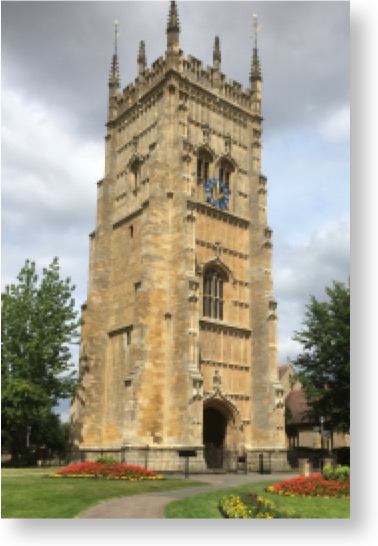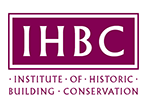
The mark of the conservation professional
Recognition of Courses by IHBC
IHBC and Course Recognition
This page carries guidance on procedures and standards required for courses to achieve recognition by IHBC.
Full recognition of a course by the Institute confirms that the course achieves a standard that should allow its graduates to satisfy IHBC membership criteria, where supplemented by an suitable balance of professional experience. Full recognition confirms that the course provides the aspiring conservation professional with the best possible support for attaining IHBC membership. Ordinarily applicants for IHBC membership without formal conservation training require a minimum of five years of relevant professional experience, but graduates of fully recognised courses need only have a minimum of two years of such experience.
Conservation courses that are fully recognised by the IHBC provide a unique route to professional activity in the field conservation. They provide an informed inter-disciplinary grounding in the understanding of conservation that no traditional built environment training programmes aspire to match. They give students the essential tools to develop a career in the sustainable conservation and management of a rare and valuable resource, our historic places.
The skills typically developed in the fully recognised courses are inter-disciplinary, environmentally-aware and people-based, focussing on managerial and advisory skills based on a direct experience of the conservation process. Such skills are increasingly sought after. Indeed the ConstructionSkills Sector Skills Council’s research ‘Altogether Stronger - Skills Needs Analysis for construction’ (2004/5) has noted that
‘Research with best practice construction has revealed that… managers… are weaker in the soft skills needed for successful partnering… There is a lack of understanding of the impact of the Government’s wide-ranging sustainability agenda… [and] there is evidence of a growing concern as to the skills of both their existing staff and new recruits. These centre particularly on the technical skills associated with design and the management of projects’.
Procedure for Course Recognition
- Course Leaders submit their course syllabus to the Institute for formal recognition. Further details are provided below.
- The syllabus will be assessed in terms of the eight competences required for membership. (Membership page)
- A summary of how those competences are addressed within the syllabus also must be submitted, together with any other relevant supporting information (e.g. membership of IHBC by contributors, etc.)
- Where a course achieves recognition, publicity must clearly reflect the standing of the course with the IHBC, and copies (electronic or otherwise) of all core publicity should be passed to the Director.
As we are reviewing the balance and standards of competences to be expected of students within a course programme, we will not ascribe to any course a guaranteed route to full IHBC membership. However, as our constitution recognises, in considering any application for full membership, special weight will be placed on how the balance of professional experience and educational coursework support the applicant’s competences.
Where competences are not covered within a course to a standard reflecting that required for full membership, then students looking to become Full Members of the IHBC should be made aware of the need to gain those competences outside the course, for example either through their professional experience or suitable complementary training routes, such as CPD. Publicity for recognised courses must reflect the standing of the course as either ‘satisfying all the competences’ or list the specific competences it satisfies in accordance with the guidelines below. Prospective students should be directed to the IHBC web site which will also carry this information. Copies (electronic or otherwise) of core course information should be passed to the Director.
Offering Course Recognition: what we will do
There are two forms of course recognition operated by the IHBC:
- Where a course will help a student achieve the full range of IHBC competences to a suitable standard we will recognise it as ‘a course satisfying all the competences of the IHBC’, that is: ‘A Course that can provide the full range of training expected of an applicant for full IHBC membership and which, in conjunction with appropriate professional experience (minimum 2 years), should secure full membership of the IHBC.’
- Where a course will help a student achieve specific IHBC competences to a suitable standard we will recognise it as ‘a course satisfying the following competences of the IHBC’, that is: ‘A Course that can provide a part of the training expected of an applicant for full IHBC Membership and which, in conjunction with appropriate professional experience (minimum 2 years), will help secure full membership of the IHBC.'
NB: Any course can only satisfy an applicant’s requirements for IHBC membership when supplemented by appropriate professional experience
All recognised courses may be promoted as being ‘Recognised by the IHBC’ in publicity material, and our logo adopted. However the information on the course must make clear the precise areas of recognition, and adopt the corresponding phrasing above. In all publicity and information appropriate emphasis should be given to the fact that, in accordance with our constitution, a course can satisfy an individual’s membership requirements only in conjunction with appropriate professional experience.
Changes in courses must be notified to us immediately for review, while each year a cross-section of recognised courses will be re-assessed.
Achieving Course Recognition by IHBC: what you must do
- Send a copy of your syllabus and associated information (preferably electronically) to the Director (director@ihbc.org.uk, or post to IHBC, Jubilee House, High Street, Tisbury, Wiltshire SP3 6HA
- Submit also an assessment of how you consider the course addresses the Institute’s competences (both as regards strengths and weaknesses).
Please supply any additional information you think may support your case for recognition.
We hope to present a formal determination within three months of full submission, provided no issues need to be addressed. However where special circumstances apply, we reserve the right to alter this. Should you require ‘fast-tracking’ for a particular reason, please advise us accordingly.
Promoting Course Recognition: what you can do
Please do encourage your students to join the Institute as affiliates or as appropriate, and to become involved with our activities. Student rates are generally subsidised, and participation in IHBC events will enhance the credibility of any applicant for full membership.
In addition, course tutors or contributors who are not already members might like to consider applying for full or affiliate membership; affiliate membership in particular may often suit course leaders, while involvement with our operations could provide an appropriate route to full membership.
Finally, in determining who should contribute to your course-work, consideration should be given to achieving a balance of IHBC members (full, affiliate, or associate). The breadth of skills typical of IHBC members can help mitigate issues arising from more narrow or focused courses.
Any enquiries should be passed to the Director (director@ihbc.org.uk).

